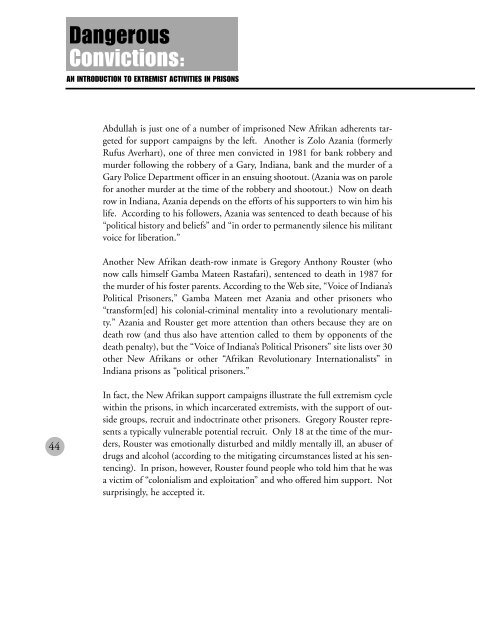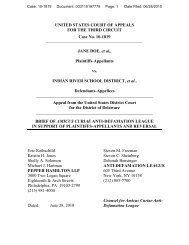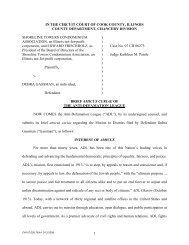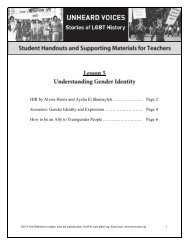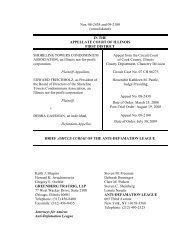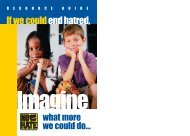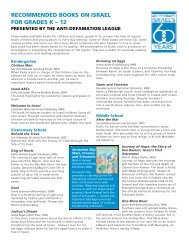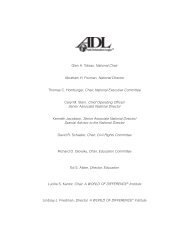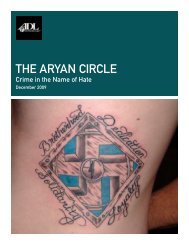Dangerous Convictions for PDF - ADL
Dangerous Convictions for PDF - ADL
Dangerous Convictions for PDF - ADL
You also want an ePaper? Increase the reach of your titles
YUMPU automatically turns print PDFs into web optimized ePapers that Google loves.
44<br />
<strong>Dangerous</strong><br />
<strong>Convictions</strong>:<br />
AN INTRODUCTION TO EXTREMIST ACTIVITIES IN PRISONS<br />
Abdullah is just one of a number of imprisoned New Afrikan adherents targeted<br />
<strong>for</strong> support campaigns by the left. Another is Zolo Azania (<strong>for</strong>merly<br />
Rufus Averhart), one of three men convicted in 1981 <strong>for</strong> bank robbery and<br />
murder following the robbery of a Gary, Indiana, bank and the murder of a<br />
Gary Police Department officer in an ensuing shootout. (Azania was on parole<br />
<strong>for</strong> another murder at the time of the robbery and shootout.) Now on death<br />
row in Indiana, Azania depends on the ef<strong>for</strong>ts of his supporters to win him his<br />
life. According to his followers, Azania was sentenced to death because of his<br />
“political history and beliefs” and “in order to permanently silence his militant<br />
voice <strong>for</strong> liberation.”<br />
Another New Afrikan death-row inmate is Gregory Anthony Rouster (who<br />
now calls himself Gamba Mateen Rastafari), sentenced to death in 1987 <strong>for</strong><br />
the murder of his foster parents. According to the Web site, “Voice of Indiana’s<br />
Political Prisoners,” Gamba Mateen met Azania and other prisoners who<br />
“trans<strong>for</strong>m[ed] his colonial-criminal mentality into a revolutionary mentality.”<br />
Azania and Rouster get more attention than others because they are on<br />
death row (and thus also have attention called to them by opponents of the<br />
death penalty), but the “Voice of Indiana’s Political Prisoners” site lists over 30<br />
other New Afrikans or other “Afrikan Revolutionary Internationalists” in<br />
Indiana prisons as “political prisoners.”<br />
In fact, the New Afrikan support campaigns illustrate the full extremism cycle<br />
within the prisons, in which incarcerated extremists, with the support of outside<br />
groups, recruit and indoctrinate other prisoners. Gregory Rouster represents<br />
a typically vulnerable potential recruit. Only 18 at the time of the murders,<br />
Rouster was emotionally disturbed and mildly mentally ill, an abuser of<br />
drugs and alcohol (according to the mitigating circumstances listed at his sentencing).<br />
In prison, however, Rouster found people who told him that he was<br />
a victim of “colonialism and exploitation” and who offered him support. Not<br />
surprisingly, he accepted it.


